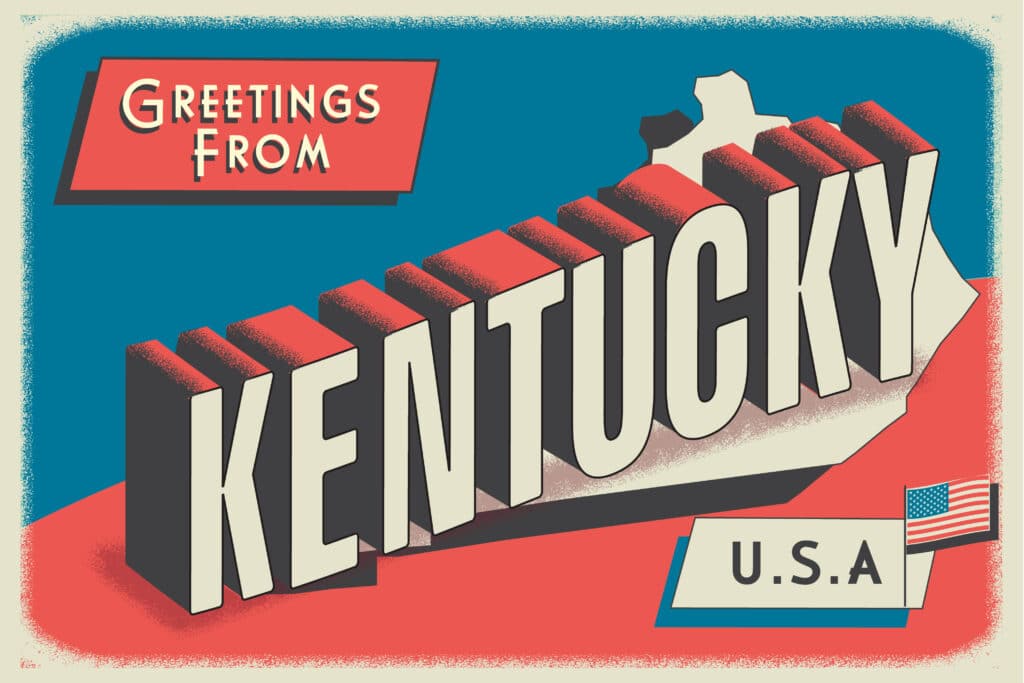
Congress Avoids Gov’t Shutdown, for Now

In this year-end episode of Politics & Risk, The Council’s senior vice president and vice president of government affairs, Joel Kopperud and Blaire Bartlett, discuss the turmoil in Washington, D.C., as Congress struggled to keep the government open through the new year.
Additionally, Bartlett interviews Republican Rep. David Joyce, of Ohio’s 14th Congressional District. The congressman offers his thoughts on the incoming presidential administration and hot-button legislation pertaining to cannabis and banking.
Read the Transcript
Disclaimer: Podcast transcriptions are computer generated, please excuse errors. For the most accurate version of the conversation, please refer to audio.
Rep. David Joyce:
I don’t care if my name’s on anything. I just want to fix problems. You don’t see me on TV because I don’t want to be there. I just want to do the right thing for the right reasons at the right time.
Joel Kopperud:
Greetings, everyone. Thank you for joining us for our latest podcast, Politics & Risk. We’ve got a very special edition for you this week. We’ve got a great conversation with Congressman Joyce that Blaire Bartlett kicked off, and we’re looking forward to moving into that. It’s the holiday season. We’ve got a lot to cover, but first and foremost, we’ve got a special guest joining us at the podcast this week, Council President and CEO Joel Wood.
Joel Wood:
I only wanted to pop in to wish everyone a joyous holiday season and a happy, healthy 2025. As for all of us in the government affairs team, there was a little coal in our stocking this week and I will leave it to you to describe that, but I just wanted to extend warm greetings to everyone. This coming year, particularly on the government affairs side, is going to be tumultuous. We have so much at stake, particularly in the context of tax reform. To all of you who have supported all of our efforts throughout this year and previous years, we are also deeply grateful.
Joel Kopperud:
Thank you. Thanks for being here and feel free to join the conversation. Joel mentioned coal. I don’t know that we know if it’s going to be coal or not.
Blaire Bartlett:
It wasn’t going to be coal. It was going to be a perfectly wrapped Christmas package that every lobbyist was excited about.
Joel Kopperud:
This is a very timely conversation. If you’re listening to this podcast a week from now, it will already have been resolved. Yesterday I had a nice email all prepared to click send. I was going to wait to see what actually happened, but the email suggested that were going to have our PBM transparency language included in the federal funding bill, as written, practically, from Steptoe & Johnson. This measure was our top legislative priority in this Congress last year. Particularly, Blaire and I spent a lot of time shopping this around the Hill, educating committee staff in the House and the Senate, Democrats and Republicans, threading the needle to make sure that we had bipartisan agreement on this language to require PBMs to be transparent with their compensation schemes.
We were victorious. It was in both the House and the Senate reform packages. The House ultimately passed their version through the House and then it was a dramatic pause. We knew that if anything could get through this Congress, this was it. This was low hanging fruit on the health care side. This is one of those issues where 80-90% of members of Congress agree on it. It was the process that was always against us. Moving into the lame duck post-election, we were like, lame duck is really the last chance. We saw a draft come out on Sunday that included our language verbatim, and then some. It went really far on PBM reform measures.
Blaire Bartlett:
We’ve been looking at telehealth expansion, and that was included. Pretty much everything that people had been working on that needed those last-minute extensions was in this package. Then within a matter of a day it just came falling down. One post, one tweet, three, four, that are able to take down a 1500-page bill that staff and experienced legislators have been working on. Are we surprised? No. Are we frustrated? Absolutely. Now is not the time. We don’t have the time.
Joel Kopperud:
It should not come as a surprise to anybody. Speaker Johnson has been saying all year that there will not be a Christmas tree bill. The bill that he laid out on Sunday was a Christmas tree bill. It had our PBM language in it. It had disaster relief funding in it. It had agriculture reauthorization in it, aid to farmers. It had a pay increase for members of Congress who haven’t had a pay increase since 2004. It was a full Christmas tree bill, which is not uncommon for end of the year legislation, but particularly going into a new administration to use this as an opportunity to clear the brush, get all the low hanging fruit out of the way, so they can start fresh those first hundred days on their top priorities and not have to deal with issues from the last Congress. The pressures within the caucus did not have a Christmas tree bill and the fiscal hawks really came unglued. It started with a tweet from Elon Musk, which is going to be a fascinating role to see him play in Washington politics for having very limited experience in politics. I’ve got a lot of friends who are suggesting, look everyone, watch America’s latest oligarch at play.
Blaire Bartlett:
I can’t wait for him to see how much waste there is, leading up to a government shutdown, when you have a government shutdown. That is a toll on the American taxpayer. I hope he figures that out, because no one knows how expensive it is, what it does to business. No one wins when you have that. I hope he learns that early on.
Joel, for this podcast we have for our listeners, one of my top three favorite members of Congress. Dave Joyce representing the northeast part of Ohio. He has, like some other guests on here, a career steeped in public service, was a prosecutor for 25 years before coming to Congress. Congressman Joyce is also a lead on our SAFER banking bill on cannabis, so we explore that a little bit. He works well with others in a bipartisan manner and wants to get things done and has worked even with AOC on stuff. We’re seeing more and more those rare breeds of bipartisan members leaving, retiring. I hope he stays around a lot longer. Enjoy.
SAFER Banking Act, cannabis, I wanted to pull that thread a little bit on how a prosecutor supports and is vocal about cannabis in Congress. How did you get to that place?
Rep. David Joyce:
I’ve always been a states’ rights guy. I was listening to Sam Farr give a talk about how it was medically legal in California, yet the VA hospitals couldn’t prescribe it to veterans who were there. Veterans obviously were needing it for PTSD and other things, so I voted for it. At that time, Speaker Boehner had summoned me into his office saying, “What the hell are you doing?” And I said, “Well, here’s why I think it’s a states’ rights issue. These guys can do it. I watched my dad die of cancer, and all the poor guy wanted was to have a decent meal. If that would have helped him at all, then why shouldn’t he have access to it? It’s stupid.”
I continue to get involved in those things because the states continue to move down the path between medically legal or fully legal. You can see where this is an industry that’s being created from nothing. I’d rather make sure that we put the proper guardrails around it, and we did it correctly instead of having 50 different systems out there with no federal oversight, other than to say, “Don’t.”
We have obviously created those same type of safeguards for the wholesale liquor industry and for beer and wine and spirits. It was important that we continue to do something and provide those safeguards, make sure kids don’t get it, make sure what’s out there is a safe product and not laced with fentanyl or other things, and put some controls and reins in this growing industry. That’s how I got into the banking aspect of it as well. The banking aspect brings in Operation Choke Point, where the government was choking off people who dealt in firearms, and people were getting debanked. We used to think that was an improper term, but I tell you, the guy right now who really understands debanking is President Trump because it happened to him. He’s been active in it. I’m surprised we couldn’t get it pushed through at the end of this year, but I see great hope for it going into the next session if we don’t get it done by the end of the year.
Blaire Bartlett:
Do you expect that it will be introduced next Congress, both in the House and Senate? This was the first time that the Senate Banking Committee reported the bill out of committee. There was that movement on the Senate side which we hadn’t had before.
Rep. David Joyce:
We passed it seven times.
Blaire Bartlett:
Yeah, in the House.
Rep. David Joyce:
I have had a number of meetings and today I just had a going away lunch with Patrick McHenry, who was no big fan of at the start, but he was crediting my being involved to the other members of the lunch, saying, “If it wasn’t for this guy, he put me in Schumer’s office.” He and Kyrsten Sinema schooled me on how this all works. I got him to talk about SAFE and we spent the next half hour talking about stablecoins. Whatever it takes to make things work around here. If we have to hang on to stablecoins or whatever else, the process is just to make sure that we have legitimate concerns in the states in which they’re operating, and they should have access to legal, safe banking systems. Banks can do what they do, take that money, and turn it around in the communities in which they exist.
Blaire Bartlett:
We saw it as an opportunity in the insurance industry, making sure that were able to get language that financial services included insurance, so that those employers are able to offer benefits and get their required workers comp insurance without issue. Never thought I would be registered to lobby on cannabis, but here we are.
Rep. David Joyce:
I never thought I’d be advocating for it, but here we are.
Blaire Bartlett
We’ll try again next time.
Rep. David Joyce:
That’s it. You make a good point, too. The insurance industry has to insure these operations. When I get members to make the turn is if they actually go visit a grow operation and realize there’s people treating it like the product it is and it’s clean, it’s safe. They make sure that everything is taken care of and documented, and they can follow this thing from seed to sale, they know how much they produce. As government, in Ohio, with that seed to sale, you know how much they produce, how much you could sell it for. Therefore, having it in the banking system provides access to another avenue in which we can do oversight and internal control by showing, if you grew 400 pounds, then you should have X number of dollars in the bank account, and if you don’t, then, reason for an audit. Similar to how we do casinos.
Blaire Bartlett:
We saw a lot this past Congress, and maybe even before that, the death of bipartisanship. Sometimes it was used as a campaign attack. Do you think we face that next Congress? Do you think it’s even stronger? Do you think there’s still hope?
Rep. David Joyce:
That’s a good point. I like to think there’s hope, but then again, I’m a Browns fan, so it’s rough. I think we’re going to get the Super Bowl sometime in my life. The people in RG2 went from D+12, which is David Valadao, the new chair, to R+22, Blake Moore, who’s the secretary of the conference. In between is a huge gap of folks, and we meet, just as members, no staff or anything else, have lunch and talk about the issues that are before us. Today we talked about what it’s going to look like on Inauguration Day. We also had the people from the White House transition team talking about some of the policies they want to get up and running in the first hundred days.
You have to socialize the things that you want to get accomplished, so people feel comfortable with them and start discussing. They feel like they’re part of the plan, instead of being told what they’re going to do, which is similar to what we’re doing here at the end of the year with this. It’s not a CR, it’s not an omnibus, it’s the big Johnson. It’s just going to drop on us and it’s going to have laid out all his wish list of things that he had to give to the Democrats to finally get to where we need to go. That’s okay, because it’s more important if you do bills on a bipartisan basis, especially when we do it next year with the tax bills. Those are things that last.
All the people you represent, those businesses, one thing they want from us is certainty. They want to know if they have a deduction this year and that if they’re going to get something on a five- or ten-year window, that it’s going to be in place for the five- or ten-year window so they can get their investments back. You see that now with a lot of the green energy, people didn’t necessarily want to do it, but the credits were out there and now, all of a sudden, you want to yank those credits back. That’s not fair to people, not three years into a five- or seven-year project, and they’re not going to get those things. That’s why I think we all get together and produce the will of the House. We produce much better bills that have more certainty, that give businesses more certainty and certainly your industry as well.
Blaire Bartlett:
We always end with two questions. Who’s a member from across the aisle that you work well with? Who’s one of your favorite Democrat members?
Rep. David Joyce:
Since you brought up the cannabis issue, it took a long time, but Earl Blumenauer and I have developed a good friendship and rapport. He’s moving on. At first, you get people here who really want to own an issue and he owned it. I was like the new kid at the candy store, so he wouldn’t want to let me in, but he finally understood that I don’t care if my name’s on anything. I just want to fix problems. You don’t see me on TV because I don’t want to be there. I just want to do the right thing for the right reasons at the right time. We eventually got a really nice relationship. At his going away party, I was the only Republican he invited to come up and speak on his behalf. I joked with everybody there, because everybody before had talked about a speech that he gave or a place that he was at and the stances he’d taken, and I said the only thing I’ll never forget is him in front of me doing his yoga pose, as we used to do the old man’s yoga in the morning at the gym. I can’t get that out of my mind.
Blaire Bartlett:
Thanks. What is the number one concern you hear from constituents when you’re back in the district?
Rep. David Joyce:
The economy.
Blaire Bartlett:
Okay.
Rep. David Joyce:
People are worried. The inflation. I don’t think people truly understood it. It was best described to me by a Village worker, right after McCarthy got dumped and Patrick sent us all home for a cooling off because things were a little heated. I was out walking the dog in the park and the gentleman shuts off the lawnmower and says, “You a congressman?” I said, “No, my name’s Dave.” “So, Dave, can I ask you a question?” I said, “Sure.” He said, “What the hell’s going on?” I said, “I wish I knew, brother. I mean, this doesn’t make any sense to me. Kevin McCarthy was a great guy, great speaker. Things were moving under him, and we had a consistency to our program. I don’t know what’s going on.” He says, “All I know is I’m working harder and I’m making more, Village was kind enough to give me a 3% raise, but everything in my life is 20% more. I bought a diesel truck and I pay more than regular gas now. Everything, whether it’s my cable bill, whether it’s my utilities, whether it’s going out to get a new car loan. I mean, everything costs more.”
You hear that consistently throughout the district, that people were finally really understanding that, out in the farm country, you could stop at some local farm and pick up a dozen eggs for two or three dollars. All of a sudden, they were five. Everything went up. Even Amish areas went up. It’s something that universally cut across for people, and they’re worried about their jobs, and they’re worried about their kids’ jobs and their grandkids’ jobs.
Another part that this young man said to me is, “Look, I don’t care if the guy said mean things, I did better off under him.” I think that might have been part of the allure for bringing President Trump back, was that while they don’t necessarily like some of the craziness that took place before, they’re willing to put up with some of the things as long as the economy is working in their favor instead of against them.
Blaire Bartlett:
Well, thank you. Thank you for your time. Thank you for talking about cannabis and bipartisanship with us. It was lovely.
Rep. David Joyce:
Thank you for being you. You’re always very good about keeping your issues and your industry in front of me and the nuances of things. Since I took over financial services, general governance, there’s a lot of issues I don’t know, so please keep bringing those things to our attention because we want to make sure that if we do fail, the insurance company is there to catch us.
Blaire Bartlett
Yeah, you got it.




